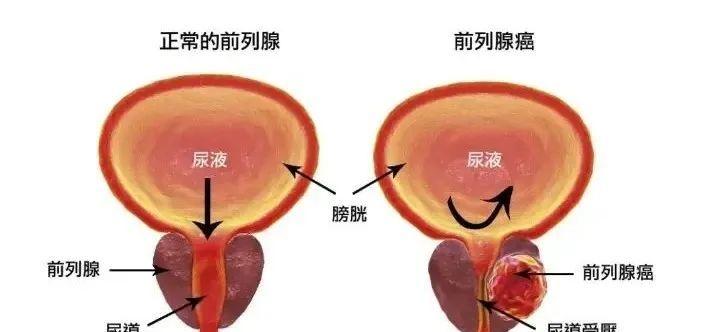Released by the National Cancer Center
China Cancer Reports show
In 2016, there were new cases of cancer in men in mainland China
Prostate cancer accounts for 78,000
In 2020, there were new cases of cancer in men in mainland China
Prostate cancer accounts for 115,000
Ranked sixth for new cancers in men

With the gradual increase in life expectancy of the mainland population and the popularity of prostate-specific antigen (PSA) screening in recent years, the incidence of prostate cancer in the mainland has shown a trend of increasing year by year.
It has been established that age and heredity are important factors in the occurrence of prostate cancer, so for people who are accustomed to enjoying "happiness on the tip of the tongue", will daily eating habits have an impact on prostate cancer?
Is prostate cancer related to diet?
Studies have shown that the gradual increase in the incidence of prostate cancer in Asian countries is related to lifestyle westernization. Epidemiological surveys have also shown that when Asians move to the United States, the incidence of prostate cancer will also increase significantly, close to the incidence of American men.
This suggests that exogenous factors such as the environment and eating habits may affect the occurrence of prostate cancer. At present, there are many studies that have explored the relationship between various eating habits and the occurrence and development of prostate cancer:
01 Alcohol
Heavy alcohol consumption is a risk factor for prostate cancer and is also associated with prostate cancer mortality. This risk increases with increased alcohol intake.
02 Dairy products
There is a weak correlation between high intake of protein in dairy products and prostate cancer risk.
03 Fat
No association between long-chain Ω-3 polyunsaturated fatty acids and prostate cancer was not found. There is only a possible relationship between eating fried foods and the risk of prostate cancer.
04 Tomatoes
Some studies have found that intake of tomatoes (mainly cooked) and lycopene/carotene can reduce the incidence of prostate cancer. However, randomized controlled studies with higher evidence confirmed that consumption of lycopene was not associated with low incidence of prostate cancer.
05 Meat
No association was found between eating red meat or processed meat and prostate cancer.
06 Phytoestrogens
Phytoestrogen intake can significantly reduce the risk of prostate cancer.
07 Soy
Soy products contain phytoestrogens [isoflavones/coumarins], which are analogues of estrogen in women. The total intake of pulse foods reduces the risk of prostate cancer, but on the other hand, it also increases the risk of advanced prostate cancer.
08 Vitamin D
There is a U-shaped curve between vitamin D intake and prostate cancer. If the intake of vitamin D is too low or too high, it will increase the risk of prostate cancer, especially high-grade prostate cancer.
09 Vitamin E and selenium
Selenium levels in nails (reflecting long-term exposure) were found to be inversely correlated with the incidence of aggressive prostate cancer. However, supplementation with selenium and vitamin E does not alter the incidence of prostate cancer. That is, supplementation with selenium and vitamin E has no effect on preventing the development of prostate cancer.
10 green tea
In Asia, where prostate cancer is low, green tea is consumed in relatively large amounts. Green tea contains antioxidants, which may stop the overproliferation of cancer cells and reduce the risk of tumorigenesis.
In general, heredity is an important risk factor for the occurrence and development of prostate cancer, and exogenous factors (such as diet, medication, etc.) may have an important impact on this risk. However, there are currently no known effective preventive dietary interventions.
Doctor's tips
At present, the most effective way to reduce the risk of prostate cancer is early detection and early treatment. Guidelines also give clear indications for early prostate tumor marker (PSA) screening:
1. Men > 50 years old;
2. Men > 45 years old with a family history of prostate cancer;
3. Men who are older than 40 years old and have a baseline PSA greater than 1ng/ml.